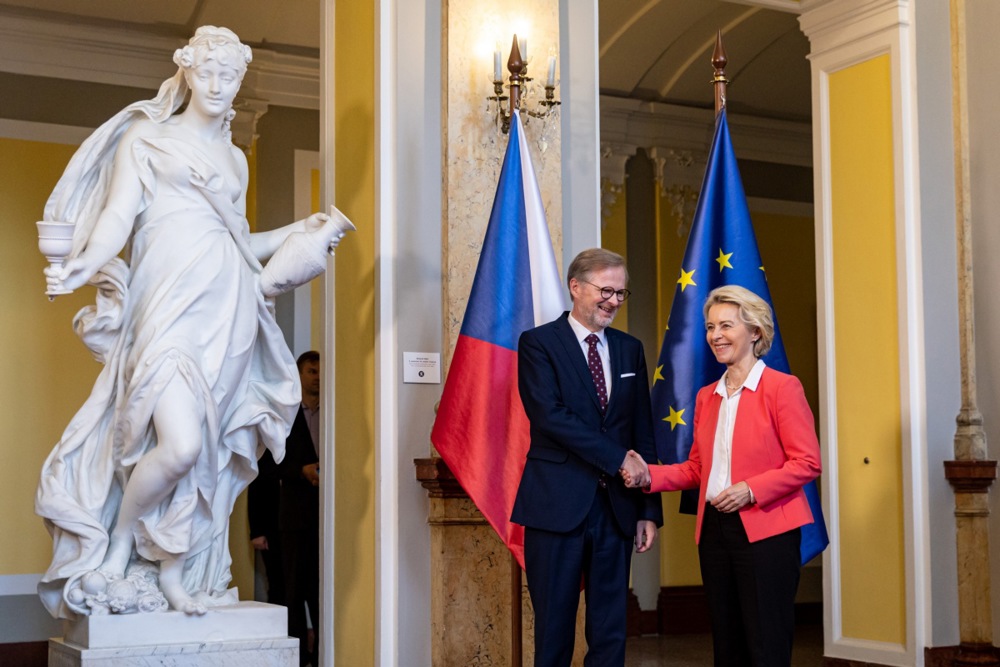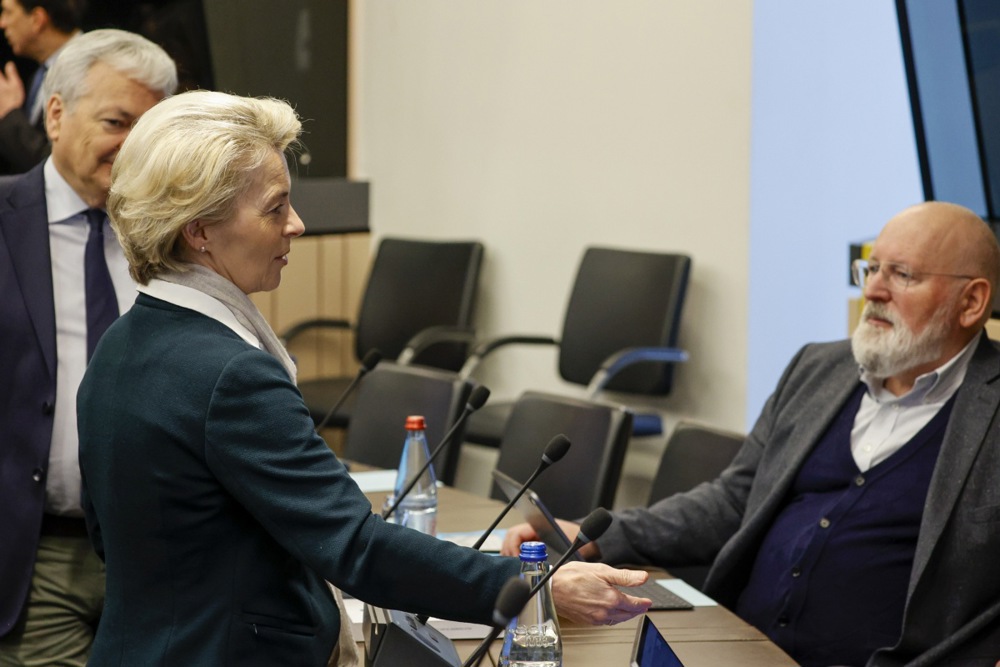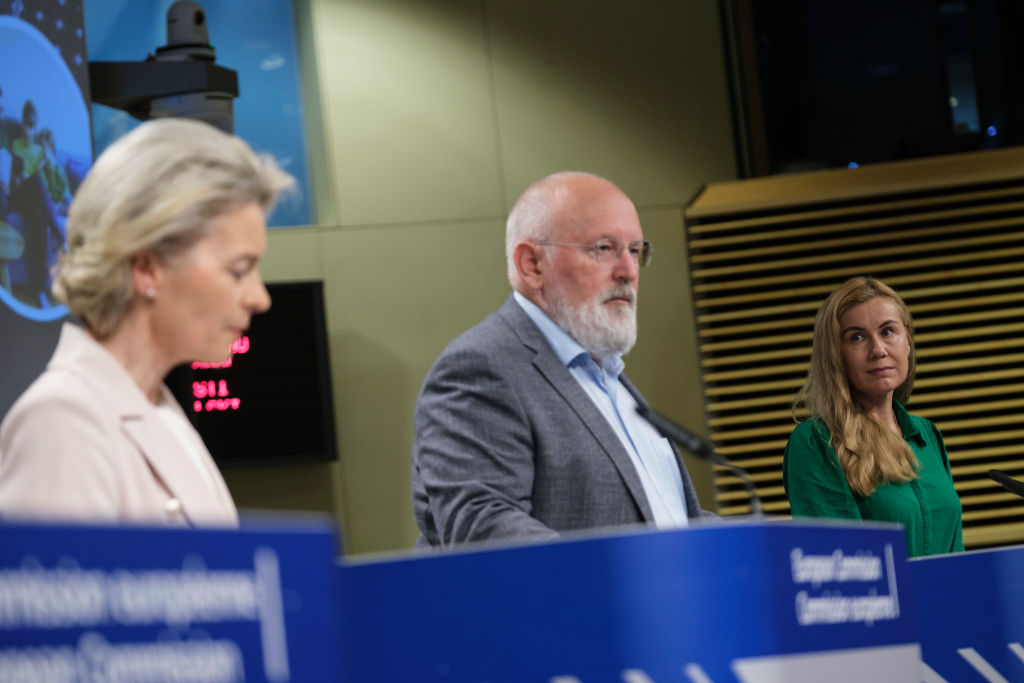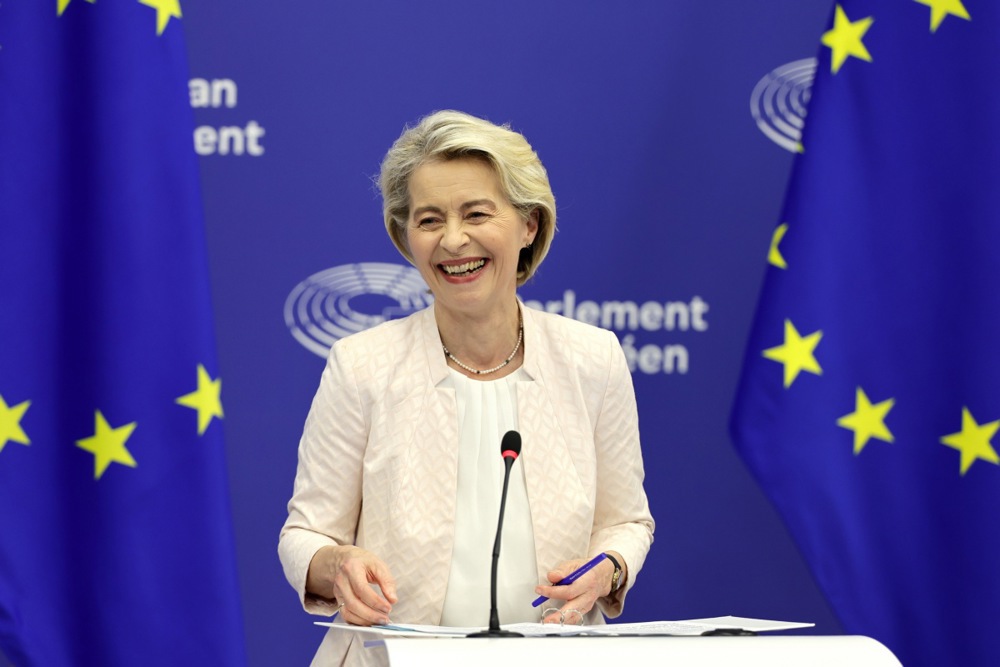European Commission President Ursula von der Leyen has said that Europe needed “more nuclear”, marking a departure from her previous, more sceptical stance.
Speaking at a security conference in Prague, the GLOBSEC Forum 2024 on September 2, von der Leyen said: “We have learnt our lesson. When we speak about our energy, we have to produce more of our own energy – more renewables, more nuclear, more efficiency.”
Von der Leyen made the speech in light of Europe’s security architecture, which she said needed a “fundamental rethink”.
Russian gas had become “a source of vulnerability” and with Russia invading Ukraine, the European Union had to look for help from the US and other partners for its energy, she said.
“We bought energy together to have a strong market power. We brought prices down and under control – they are still too high, but we brought them down quite a lot. But most importantly, we have worked on a structural response to this crisis.
“We invested massively in renewable energy. And we are investing in the fuels of the future, like for example clean hydrogen. And the result speaks for itself,” von der Leyen said.
“In the first half of this year, 50 per cent of all our electricity generation came from renewables. Wind and solar generated more electricity than all fossil fuels combined. Putin’s attempt to blackmail our Union has not only utterly failed, actually he triggered the boost of European home-grown, renewable energy that makes us independent.
“And we have learnt our lesson. When we speak about our energy, we have to produce more of our own energy – more renewables, more nuclear, more efficiency.
“When we speak about our technologies, semi-conductors and artificial intelligence, we have to design our own European solutions. For me, innovation and competitiveness are not only an essential part of our future prosperity, but they are also an essential and crucial part of our long-term security,” she added.
Von der Leyen’s call for more nuclear is a shift from her prior position.
She was part of the 2011 German government, under the leadership of Angela Merkel, that decided to phase out nuclear energy in the country.
On June 30, 2011, Berlin ordered the immediate shutdown of eight of the country’s 17 reactors. The decision also outlined a timeline for taking the rest of the nuclear plants offline by 2022.
More than 80 per cent of parliamentarians in the Bundestag passed the nuclear phase-out plan. Only the Left party voted against the measure, saying it wanted a faster timeline.
Top German government officials have been accused of manipulating information regarding the decision to close down Germany's last working nuclear power plants. https://t.co/Z9ye344jV0
— Brussels Signal (@brusselssignal) April 26, 2024
Under the leadership of von der Leyen, the European Commission has, until now, been reluctant to support nuclear energy. Her former EC vice-president and main proponent of the all-important Green Deal, Frans Timmermans, opposed nuclear energy, claiming it was expensive, inefficient and outdated.
For a long time, the EC went all in on renewable energy and biofuel. Even in the plans for the next EC, von der Leyen only mentioned nuclear energy in a negative light when speaking about threats linked to chemical, biological, radiological and nuclear (CBRN) security.
Other European figureheads have been pushing the envelope on nuclear energy. In April 2024, Maroš Šefcovic, EC executive vice-president, and Thierry Breton, Commissioner for the Internal Market, both heaped praise on what they said were the positives nuclear energy had to offer for the future of Europe.
The European Commission has thrown its weight behind nuclear energy just ahead of the European Parliament elections in June, praising the technology at a high-level event in Brussels on Thursday. https://t.co/XKHV0svO0X
— Brussels Signal (@brusselssignal) April 11, 2024
European Member States have been divided on the issue. Some countries such as Germany and Austria, oppose nuclear energy but an increasing number of countries are in favour of it.
At the COP28 climate summit in Dubai late last year, 22 countries, 11 EU Member States pledged to triple nuclear energy capacity by 2050.
Countries that had banned nuclear energy in the past are now returning to it, for example, Italy, Switzerland, Sweden, and probably soon also Belgium.
France has always been a proponent of the low-emission energy source and has been at the forefront in Europe promoting it.
Thanks to nuclear energy, France has a relatively small carbon footprint, despite being a major electricity producer.
?? FRANCE: 43g CO2/kWh ? using 77% Nuclear, 9% Hydro and 6% Gas.
?? GERMANY: 448g CO2/kWh ? using 28% Coal, 22% Wind and 17% Solar.
Provided by @ElectricityMaps, data is about live consumption as of 02/09/24 08:35 Berlin's time.
— Eurogrid Carbon Intensity (@european_grid) September 2, 2024





